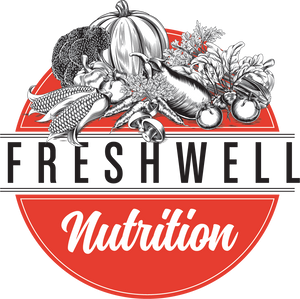Move over pea protein powder, almond protein is here to challenge you as the ultimate vegan protein! In all seriousness though, almond protein powder is quickly gaining the attention of serious plant-based protein users for good reason.
Benefits of Almond Protein Powder
Almond protein powder supplements are nothing like the almond milk we’ve grown to love and, in fact, they’re much newer than decades old pea protein. While almond milk has only 1-2 grams max protein per serving, almond protein powder has a whopping 21 grams of protein per scoop! Plus, it’s a much more concentrated source of protein than whole almonds – which contain only 6 grams of protein for 24 almonds.
For those looking for a vegan or dairy-free protein powder option, almond protein is an excellent choice. It’s 100% plant-based, soy-free, dairy-free, and grain-free. It’s also different from almond flour as it contains fewer carbs and about double the protein per serving. Adding almond protein powder to smoothies, oatmeal, baked goods and other recipes will provide a slightly nutty flavor and silky texture.
Is Almond a Complete Protein?
Protein is made up of amino acids. Of the 22 amino acids that make up protein, 9 of them are considered essential because we must get them from the foods we eat. In order to be a complete protein, a food must contain all 9 essential amino acids. While almonds do contain all 9 essential amino acids, they just don’t contain enough of a few of them to be considered optimal. Good news is that as long as you are getting a variety of protein sources throughout the day (plant-based or not) you’re going to be fine on the essential amino acid front.
Almond Protein Compared to Pea Protein
So far Almond protein seems to be a game changer in the world of plant-based protein powders. But let’s not forget about our beloved pea protein powder. Like almond protein powder, pea protein powder is a much greater source of protein (15 grams per serving) than simply eating peas. And while it does contain all 9 essential amino acids, it’s also limited in one specific amino acid placing it lower on the protein quality index. Since almond protein powder contains the limiting amino acid methionine that’s missing in pea protein, and pea protein contains the low amino acids in almond protein – it may be a good idea to blend the two. Another interesting characteristic of pea protein is that it is slightly easier to digest than almond protein. While pea protein has been around for a while and is a top choice amongst plant-based powders, both proteins are good low-carb, plant-based protein supplement perfect for anyone on a vegetarian, vegan, and dairy-free, soy-free or gluten-free diet.
How Does Almond Protein Powder Taste
Almond protein powder is surprisingly not gritty at all, dissolves well in water, and adds a subtle hint of a nutty flavor to whatever you mix it with. Of course taste is subjective but here are a few quotes taken from product reviews.
“If you like almonds, almond butter, almond milk or really just all things almond this is great! I enjoyed the flavor. It has a rich, nutty flavor. Not sweet on its own.”
“The flavor is amazing and mixes well with everything. It resembles more of a milkshake. And love that it's really only one ingredient. So clean, easy to digest, and tastes amazing.”
“This is one of the best vegan proteins I have tried. Mixes well and doesn’t have an after taste like most pea based proteins. Vanilla and unflavored taste great.”
Side Effects of Almond Protein Powder
While most people won’t experience any side effects from almond protein powder, those with a treenut allergy or almond specific allergy may want to stay away. Plus, since almonds are a little more challenging for the body to digest (and packed with fiber), some people may experience discomfort there. On the other hand, almond protein powder is Non-GMO project verified, gluten-free, kosher, and vegan.

